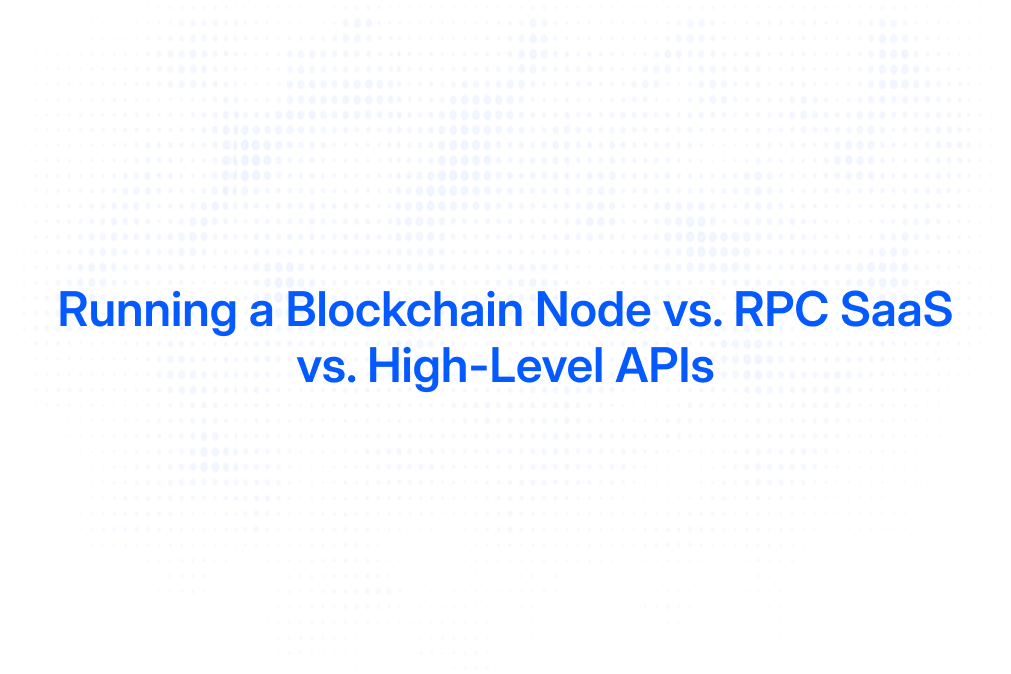How MCP Improves RPC Reliability for Web3 Projects
In the rapidly evolving world of Web3, decentralized applications (dApps) and blockchain projects rely heavily on Remote Procedure Call (RPC) endpoints to interact with blockchain networks. Ensuring these RPC connections are reliable, fast, and cost-effective is critical for delivering seamless user experiences and maintaining operational integrity. One of the emerging technologies addressing these challenges is the Multi-Cloud Proxy (MCP). This article explores how MCP enhances RPC reliability for Web3 projects, why it matters, and what benefits it brings to blockchain infrastructure.
Understanding RPC and Its Importance in Web3
RPC, or Remote Procedure Call, is a protocol that allows a client application to request services from a blockchain node. In the context of Web3, RPC endpoints serve as the gateway for dApps to query blockchain data, submit transactions, and interact with smart contracts. The quality and availability of these RPC endpoints directly impact the performance and reliability of blockchain applications.
However, RPC endpoints can suffer from downtime, latency issues, and bottlenecks, especially when relying on a single provider. Such interruptions can lead to failed transactions, delayed updates, and poor user experiences. For projects aiming to scale and maintain high uptime, managing RPC reliability is a top priority.
To mitigate these challenges, developers often implement multiple RPC providers or utilize load balancers to distribute requests evenly across several endpoints. This approach not only enhances redundancy but also improves response times by routing requests to the least congested nodes. Additionally, some projects are exploring decentralized alternatives to traditional RPC services, leveraging peer-to-peer networks to create a more resilient infrastructure that can withstand fluctuations in demand and network conditions.
Moreover, the evolution of RPC protocols is also noteworthy. Innovations such as JSON-RPC and GraphQL have emerged, offering more flexible and efficient ways to interact with blockchain networks. JSON-RPC, for instance, allows for a straightforward method of encoding calls and responses, making it easier for developers to implement and debug their applications. On the other hand, GraphQL provides a more dynamic querying capability, enabling developers to specify exactly what data they need, thus reducing the amount of unnecessary data transferred and improving overall performance. As the Web3 ecosystem continues to mature, the importance of robust and efficient RPC mechanisms will only grow, shaping the future of decentralized applications and their user experiences.
What is Multi-Cloud Proxy (MCP) in Blockchain Infrastructure?
Multi-Cloud Proxy (MCP) is an innovative approach to blockchain infrastructure that leverages multiple cloud providers to route RPC requests dynamically. Instead of depending on a single cloud or RPC provider, MCP integrates various providers across different cloud platforms and regions to optimize routing, reduce latency, and increase redundancy.
This multi-cloud strategy mitigates risks associated with cloud-specific outages or network congestion. By orchestrating RPC traffic across diverse cloud environments, MCP ensures that Web3 applications maintain continuous access to blockchain nodes, even if one provider experiences downtime.
How MCP Works
MCP acts as an intelligent proxy layer that monitors the health and performance of multiple RPC endpoints distributed across clouds like Google Cloud, AWS, Azure, and others. It automatically routes requests to the most responsive and available endpoint based on real-time metrics such as latency, error rates, and load.
For developers and projects, this means a single unified RPC endpoint can be exposed while MCP handles the complexity of multi-cloud routing behind the scenes. This abstraction simplifies integration and enhances reliability without requiring manual intervention.
Enhancing RPC Reliability with MCP
Reliability is a cornerstone for any Web3 project, where even seconds of downtime can translate into lost transactions, frustrated users, and revenue impact. MCP significantly improves RPC reliability through several key mechanisms:
1. Failover and Redundancy
MCP provides automatic failover capabilities by instantly redirecting RPC requests from failing or slow endpoints to healthy ones. This redundancy minimizes the risk of complete service outages. Unlike traditional single-provider setups, where an outage can halt all RPC traffic, MCP’s multi-provider design ensures continuous availability.
2. Load Balancing Across Providers
Beyond failover, MCP balances request loads intelligently across multiple RPC providers and cloud regions. This prevents any single endpoint from becoming a bottleneck, reducing latency spikes and improving overall throughput. Load balancing also helps in managing API rate limits imposed by providers, avoiding throttling issues.
3. Multi-Region Routing for Latency Reduction
By leveraging multiple cloud regions, MCP routes RPC calls to geographically closest or fastest nodes. This multi-region approach reduces latency, which is crucial for real-time dApps and trading platforms where milliseconds matter. Users benefit from faster response times and smoother interactions.
4. Cost Optimization
Using MCP can also lead to cost savings. By distributing RPC traffic across providers, projects can avoid over-reliance on expensive single providers and take advantage of competitive pricing among multiple clouds. Dynamic routing allows projects to optimize for both performance and budget.
Why MCP Matters for Web3 Projects
The decentralized nature of blockchain networks demands infrastructure that is resilient, scalable, and efficient. MCP addresses these needs by providing a robust RPC routing layer that enhances the core communication channel between dApps and blockchains.
Mitigating the Risks of Single-Provider Dependence
Many Web3 projects today rely heavily on single RPC providers like Infura or Alchemy. While popular, this dependence carries risks such as service outages, rate limiting, and vendor lock-in. MCP’s multi-provider approach diversifies risk and ensures that no single point of failure can disrupt application functionality.
Scaling to Millions of API Calls
As blockchain adoption grows, dApps must handle millions of API calls without compromising performance or escalating costs. MCP’s orchestration across multiple providers and clouds enables projects to scale API usage efficiently, balancing load and maintaining uptime at scale.
Future-Proofing Blockchain Infrastructure
With the blockchain ecosystem continuously evolving, infrastructure must adapt to new demands and technologies. MCP represents the future of RPC routing by integrating multi-cloud strategies, API orchestration, and intelligent routing. This positions Web3 projects to remain agile and reliable as they grow.
Real-World Applications and Examples
Several leading Web3 projects have begun adopting MCP solutions to enhance their RPC reliability. For instance, decentralized exchanges (DEXs) and NFT platforms that require ultra-low latency and high availability have seen marked improvements by using multi-cloud RPC routing.
By integrating MCP, these projects reduce transaction failures during peak usage, improve user satisfaction, and maintain competitive advantages in a crowded market. Additionally, startups benefit from reduced infrastructure costs while scaling their applications seamlessly.
Implementing MCP in Your Web3 Project
For developers interested in leveraging MCP, the integration process typically involves routing RPC requests through an MCP-enabled endpoint. This endpoint abstracts multiple underlying RPC providers and cloud regions, providing a single source of truth for blockchain interactions.
Many MCP providers offer APIs and SDKs that simplify setup, monitoring, and management. Projects can customize routing policies based on latency thresholds, cost preferences, or provider reliability metrics.
Moreover, combining MCP with RPC auto-routing techniques further enhances reliability. Auto-routing dynamically selects the best RPC endpoint per request, while MCP ensures multi-cloud distribution and failover.
Conclusion
Multi-Cloud Proxy (MCP) technology is transforming how Web3 projects approach RPC reliability. By leveraging multiple cloud providers and intelligent routing, MCP reduces downtime, lowers latency, balances load, and optimizes costs. This multi-provider strategy mitigates the risks of single-provider dependence and future-proofs blockchain infrastructure for scaling demands.
As Web3 continues to mature, adopting MCP for RPC routing will be essential for projects aiming to deliver resilient, high-performance decentralized applications. Embracing this technology today can unlock smoother user experiences, greater operational stability, and sustainable growth in the competitive blockchain landscape.
Ready to enhance your Web3 project's RPC reliability and take your infrastructure to the next level? Start building with Uniblock today and join over 2,000 developers who are already enjoying the benefits of our Web3 infrastructure orchestration platform. With Uniblock, you'll gain access to a single API endpoint that intelligently auto-routes traffic across multiple providers, ensuring maximum uptime, minimal latency, and cost savings. Say goodbye to vendor lock-in and scale your dApps, tooling, or analytics with confidence. Uniblock is your partner in removing the complexity of managing decentralized infrastructure, so you can focus on innovation and growth.
.svg)


.png)



